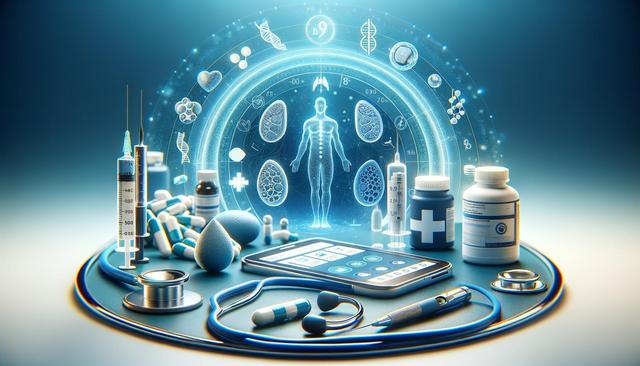What you need to know about Type 2 Diabetes Care
Understanding Type 2 Diabetes
Type 2 Diabetes is a chronic condition that affects the body’s ability to regulate glucose levels. It is primarily characterized by insulin resistance, where the body’s cells do not respond effectively to insulin. This leads to elevated blood sugar levels, which can cause a range of health issues over time. Understanding the importance of managing Type 2 Diabetes is crucial for preventing complications such as cardiovascular disease, nerve damage, and kidney issues. Regular monitoring of blood sugar levels, maintaining a balanced diet, and engaging in physical activity are foundational aspects of effective diabetes care. Additionally, staying informed about new treatments can empower individuals to make informed decisions about their health.

Innovative Medications
Recent advancements in diabetes care have introduced a range of innovative medications that offer promising results. These medications are designed to improve insulin sensitivity, reduce glucose production in the liver, and enhance the body’s ability to process sugar. Some of the latest medications include SGLT2 inhibitors, which help the body expel excess glucose through urine, and GLP-1 receptor agonists, which mimic the action of the hormone incretin to lower blood sugar levels. These medications not only assist in managing glucose but also offer additional benefits such as weight loss and improved cardiovascular health. It’s important for patients to discuss these options with their healthcare providers to determine the most suitable treatment plan.
Technological Advances in Monitoring
Technology plays a pivotal role in the management of Type 2 Diabetes, with continuous glucose monitors (CGMs) and insulin pumps revolutionizing patient care. CGMs provide real-time data on blood sugar levels, enabling individuals to make timely adjustments to their diet and medication. These devices offer alerts for high or low blood sugar levels, reducing the risk of complications. Insulin pumps, on the other hand, deliver precise amounts of insulin throughout the day, closely mimicking the body’s natural insulin release. The integration of smartphone apps with these devices further enhances their utility, allowing users to track their progress and share data with healthcare providers remotely.
Lifestyle Interventions
While medication and technology are essential components of diabetes management, lifestyle interventions remain a cornerstone of effective care. Adopting a balanced diet rich in whole grains, lean proteins, and fresh fruits and vegetables can significantly impact blood sugar control. Regular physical activity, such as walking, cycling, or swimming, improves insulin sensitivity and aids in weight management. Stress management techniques, including yoga and meditation, also play a role in maintaining stable glucose levels. Healthcare providers often recommend a personalized approach, tailoring lifestyle modifications to fit individual preferences and needs. Support from family, friends, and diabetes support groups can further enhance adherence to these lifestyle changes.
Future Directions in Diabetes Care
The future of Type 2 Diabetes care looks promising, with ongoing research focused on developing even more effective treatments. Gene therapy and stem cell research are at the forefront, aiming to address the root causes of diabetes rather than just managing symptoms. Personalized medicine, which considers an individual’s genetic makeup, lifestyle, and environment, is also gaining traction. This approach aims to create customized treatment plans that offer the best possible outcomes for each patient. As research continues to evolve, staying informed about new developments will be crucial for individuals living with Type 2 Diabetes and their healthcare teams. This proactive approach ensures that patients receive the most up-to-date and effective care available.
